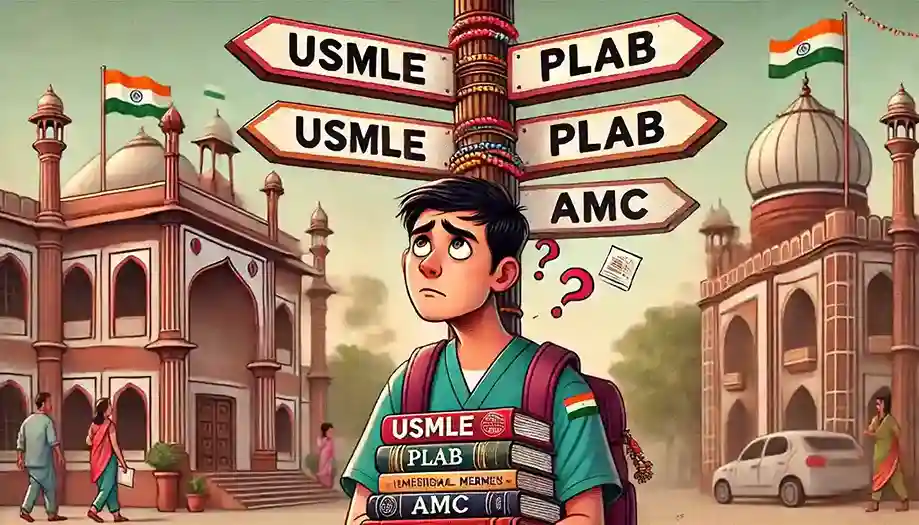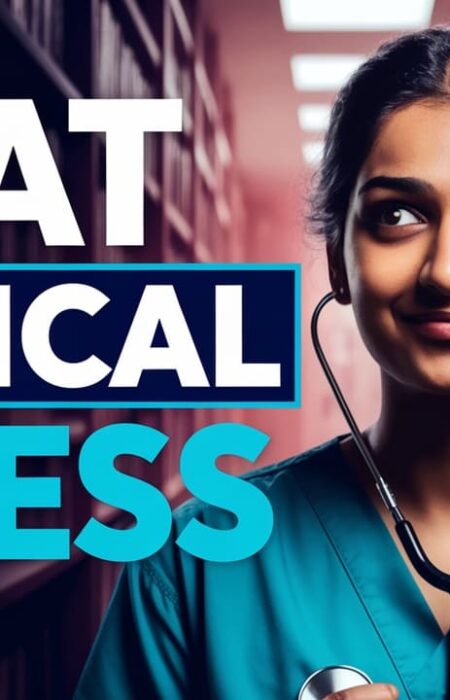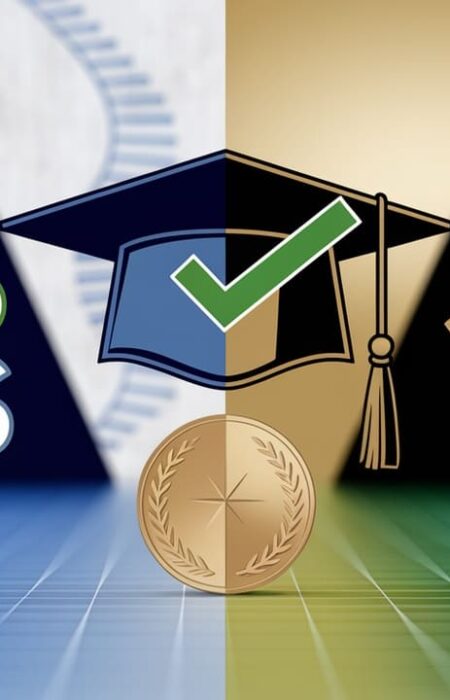Is USMLE right for you after MBBS?
We all aspire to become compassionate, pioneering doctors who make a meaningful impact on society. Choosing the right path to this goal depends on how we envision our future.
It can be through ground-breaking research, patient-centric care, or a blend of both. Each country offers unique opportunities; international hubs like the USA, UK, Singapore, and Australia provide diverse experiences.
Is USMLE Right for You as an Indian Graduate?
If you’re nearing the end of your MBBS journey in India, chances are you’ve heard about the USMLE (United States Medical Licensing Examination). It’s the golden ticket for those aspiring to practice medicine in the United States. But before you undertake this intense and expensive process, it’s essential to ask yourself: “Is USMLE the right path for me?”
What Is the USMLE?
Read our extensive number of blogs on everything about USMLE.
The USMLE is a three-step examination required to obtain a license to practice medicine in the United States. The steps include:
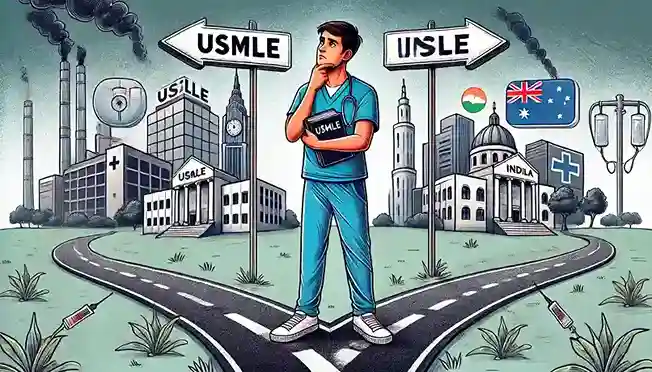
- Step 1 tests candidates’ medical practice skills using basic science. It consists syllabus from subjects that para clinical like Pathology, Microbiology, Pharmacology, Anatomy, Physiology and Biochemistry.
- Step 2 CK tests applicants’ medical knowledge and ability to treat patients under supervision. This includes your 3rd year and 4th year subjects like medicine, surgery, paediatrics, etc.
- Step 3 tests candidates’ chemical and biological knowledge in unsupervised medical situations like emergencies. This exam can be given after you get into a medical postgraduate programme in the US.
Clearing the USMLE is just one part of the journey. You’ll also need to apply for residency programs in the U.S., complete a residency (3-7 years depending on the specialty), and obtain a visa to work there.
Why Is USMLE Popular Among Indian Graduates?
The USMLE offers a chance to practice medicine in the U.S., which is attractive for several reasons:
- Better Salaries: Doctors in the U.S. earn significantly higher than their counterparts in India. Like imagine 60,000 $ for your residency and and then once you pass the residency, your starting salary is 150,000$ and it only increases depending on your speciality.
- Advanced Facilities: The U.S. healthcare system is known for its cutting-edge technology and patient-centric care. Us is the pioneer of all innovation and research.
- Global Opportunities: A U.S. residency opens doors to work in other countries as well. Once you are a “US doctor” with ECFMG certification, you can work in ANY PART OF THE WORLD without giving any more exams. You are a global doctor, hereafter.
- Research and Specialisation: The U.S. is a hub for medical research, offering unparalleled opportunities for specialisation.
Is USMLE the Right Path for You?
Before you decide, consider the following factors:
Financial Investment
- Preparing for the USMLE, applying for residency, and relocating to the U.S. is expensive.
- Cost Breakdown:
- Exam Fees: Approximately $1,000-$1,300 per step.
- Travel and Lodging: For the clinical skills exam and interviews.
- Study Material: Books, question banks, and courses like Kaplan or UWorld. Mind you, they are expensive because you pay in USD.

If you have the financial backing or are confident in securing loans or scholarships, USMLE might be feasible.
The total cost of the entire journey will vary from 20000$- 30000$ depending on the number of times you visit the US for internships, externships and whether these externships are free or paid for. You also have to pay for your own lodging and transport once you are there.
Long-Term Commitment
The USMLE journey is not a quick process. Even after clearing the exams, you’ll need to secure a residency spot, which can be competitive for foreign medical graduates (FMGs). This means:
- Preparing for the USMLE during or after MBBS.
- Sitting for that MATCH process which is very rigorous. You might or might not match into the residency programme in your first try. OR
- You might have to take a year off to enhance your CV, do your externships and the napply for the MATCH process.
- Spending 3-7 years in residency.
- Spending 1-2 years in fellowships thereafter, if you choose to super specialise.
- Staying committed to the process for several years before reaping the benefits.
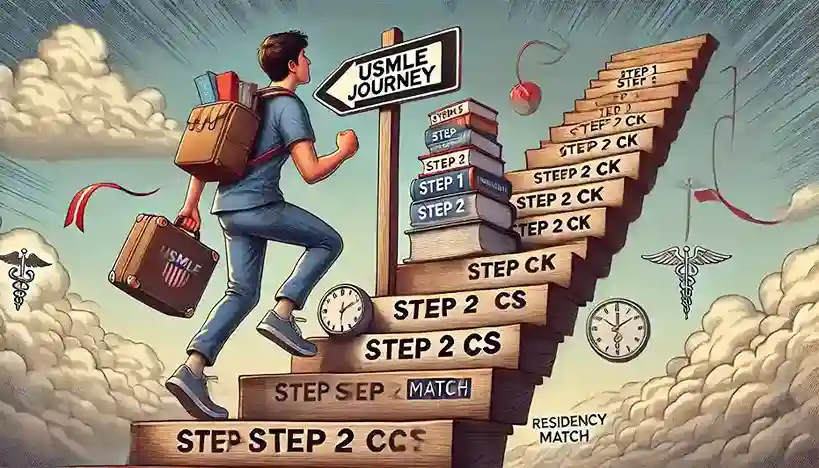
Specialty Goals
Certain specialties in the U.S. (like internal medicine and paediatrics) are relatively easier for FMGs to match into.
Others, like dermatology and surgery, are highly competitive. If your dream is to pursue a competitive specialty, be prepared for additional challenges.
Match Rate for International Students in Residency Programs
Understanding the acceptance rates for international students in various specialties is crucial when planning to pursue a medical career abroad. Match rates differ significantly across specialties and countries, so reviewing the specific data for your desired field is essential. Here’s how you can analyse match rates:
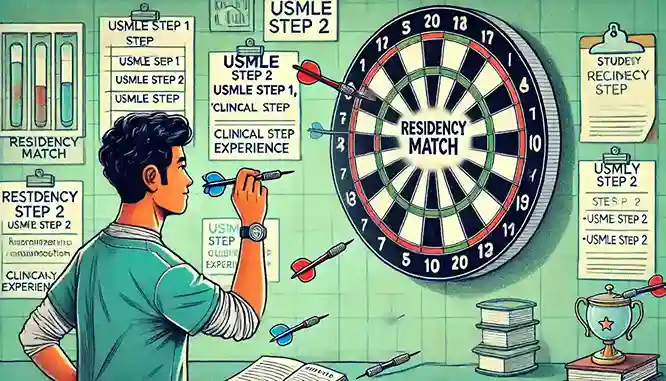
- For the USA: Refer to the National Resident Matching Program (NRMP), which provides detailed match data by specialty, highlighting acceptance rates for international medical graduates (IMGs). Access it here: NRMP Match Data.
- For the UK: Check the Competition Ratios published by Health Education England. These ratios indicate the number of applicants per available specialty seat, helping you gauge the competitiveness of different fields. Explore it here: UK Specialty Training Competition Ratios.
By going through these resources, you can make informed decisions based on specialty-specific and country-specific match rates.
Family and Personal Considerations
Moving to the U.S. often means leaving your family and adjusting to a new culture. If family support and proximity are priorities for you, this could be a deciding factor.
A lot of doctors feel very homesick and they leave their programmes to come back to their homes because they are too homesick.
Ensure you have your priorities straight well before you enter this process. You do not want to waste so much money and time only to be stuck in the middle.
Challenges for Indian Graduates
a. Visa Requirements
Securing a visa can be a hurdle. Most international medical graduates (IMGs) rely on H1-B or J-1 visas, which come with their own sets of challenges and obligations.
You will be put on the J-1 visa most probably for the span of your residency. After that you can apply for the H1-B visa , depending on your employer.
b. Residency Matching
- Matching into a U.S. residency program as an IMG can be tough.
- Programs often prefer graduates from U.S. medical schools, making it essential to have a strong USMLE score, letters of recommendation, and clinical experience in the U.S.
- Your entire purpose while on your externships and observships is to SUCK UP TO THE PROGRAMME HEAD. I am not kidding. You have to give a very good idea about yourself to the programme head such that he remembers you. Alot of times, people match into the programs where they did their internships because they create sucha a good rapport wiht the doctors there.
c. Cultural and Professional Adjustments
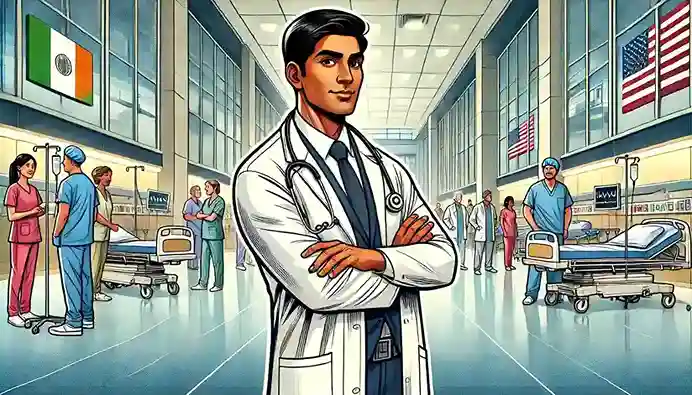
Adapting to the U.S. healthcare system and patient expectations can take time. Communication, especially with patients from diverse backgrounds, is a skill you’ll need to master.
Indian government healthcare system has ample of patient load. To such an extent that doctors resort to disrespecting or mistreating the patient. But the same may not be tolerated in the US.
Any misconduct can cost you hundreds of thousand of dollars in the USA or even put you to jail.
The “American dream” may not be as good as it looks.
You might think going to US is a dream come true. And you might want that “American dream” lifestyle. And i do agree, it is fucking great.
But, what you do not realise how difficult USA can be for people of different culture. How?
- Racism – You can face racism as an Indian. It can come in various forms where your white counterparts get the better treatment and surgeries in your program or even just a stranger throwing an insult at you while walking on the street. You are the outcast here, you cannot fight or escalate the situation.
- Work Culture– It is intense. Not nearly as bad the Indian residency but can it can take a toll on you if you are prone to making mistakes. It is a very strict, you might get more so targeted for being the outsider.
- Loneliness– Yeah yeah, you like to stay away from your family. Everyone does when they are young. But you like staying away within India. Now, crossing the seas to a new continent 16 hours away by the fastest flight? You might not like it so much. You will feel homesick. You will miss your friends and “hindi” jokes. And worst of all, if you get posted to a US state where the Indian population is negligent, oh boy, be ready for that wave of loneliness to hit you.
- Food and housework– Hear me out. You do not have any house help there. None. Not at the salary you will make. You cannot afford a “Butler”. You will do you own dishes, you will cook your own food, you will have to clean your own toilet. So be ready to balance your home and work.
Who Should Consider USMLE?
The USMLE might be the right choice for you if:
- You’re passionate about practicing medicine in a technologically advanced environment.
- You’re willing to invest time and money into this long-term goal.
- You aspire to specialize in a field with abundant opportunities in the U.S.
- You’re open to cultural shifts and building a life away from your home country.
Alternatives to USMLE
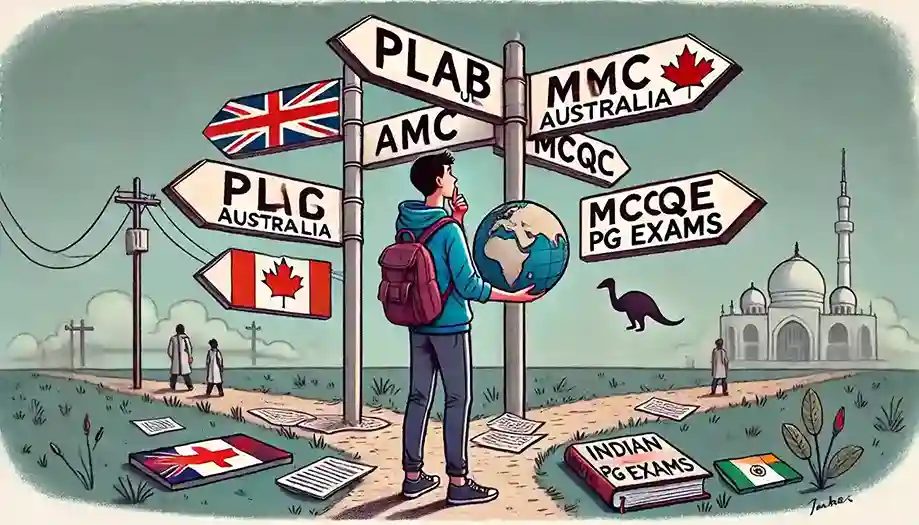
If you’re unsure about the USMLE or want to explore other options, here are some alternatives:
- PLAB (UK): For practicing medicine in the United Kingdom.
- AMC (Australia): For medical practice in Australia.
- Canada’s MCCQE: For medical practice in Canada.
- Indian PG Exams: If you want to continue your career in India.
Final Thoughts: Is USMLE Right for You?
Choosing to pursue the USMLE is a personal decision that depends on your career aspirations, financial situation, and willingness to adapt to a new environment. While it offers incredible opportunities, it’s not the only path to a successful medical career.
Take time to evaluate your goals, research your options, and talk to seniors or mentors who’ve been through the process. Whatever you decide, remember—your journey is unique, and there’s no single “right” path in medicine.
